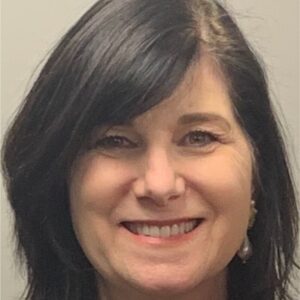PHI: Immigration policy changes could impact 1 million direct care workers
PHI, a national research and consulting nonprofit widely considered the nation's leading authority on the direct care workforce, has released a new study on immigrants in the direct care workforce, estimating that one million immigrants in the U.S. provide paid care to older people and people with disabilities. This data arrives in a year when the Trump administration has heightened both the attention and the restrictions on immigration, and reports around the country show a worsening shortage in home care workers.
"Immigrants are an invaluable part of the direct care workforce, ensuring that older people and people with disabilities access the supports they need to age and live in dignity," said Jodi M. Sturgeon, president of PHI. Direct care includes about 4.4 million home care workers and nursing assistants employed in nursing homes.
"Attacking workers who already occupy low-paying jobs with minimal protections will make it more difficult to stabilize a workforce critical to the U.S. economy," Sturgeon added.
Key findings include:
- Roughly one in four direct care workers is an immigrant, and one in three immigrants has been in this country for at least 25 years. Approximately one million immigrants are in direct care.
- The immigrant direct care workforce is comprised largely of women who work mostly part-time or part-year jobs and earn a median annual income of $19,000. Additionally, this segment of the workforce experiences high poverty rates and relies largely on public benefits to survive.
- In New York, California, New Jersey, Hawaii, and Florida—the five states with the highest percentages of immigrant direct care workers—over 40 percent of these workers are immigrants.
- A large percentage of immigrant direct care workers emigrate from the Caribbean, Central America, and Southeast Asia. Mexico, the Philippines, and Jamaica are the top three countries of origin.
"As the caregiver shortage intensifies, and more and more families struggle to find paid professionals to support their loved ones, immigrants will be a critical solution to filling that gap in available caregivers," said Robert Espinoza, vice president of policy at PHI and the author of the new study.
Among this year’s immigration-related actions from the Trump administration are a court-blocked executive order limiting travel from six predominantly Muslim countries, a proposed wall between the U.S. and Mexico, and a more aggressive use of federal resources to find and deport undocumented immigrants.
This study is part of PHI's #60CaregiverIssues campaign, an education campaign focused on the growing workforce shortage in direct care. Since February, the campaign has reached half a million people online, generated widespread media coverage, and released the first 10 issues, available at 60CaregiverIssues.org.
I Advance Senior Care is the industry-leading source for practical, in-depth, business-building, and resident care information for owners, executives, administrators, and directors of nursing at assisted living communities, skilled nursing facilities, post-acute facilities, and continuing care retirement communities. The I Advance Senior Care editorial team and industry experts provide market analysis, strategic direction, policy commentary, clinical best-practices, business management, and technology breakthroughs.
I Advance Senior Care is part of the Institute for the Advancement of Senior Care and published by Plain-English Health Care.
Related Articles
Topics: Executive Leadership , Staffing











